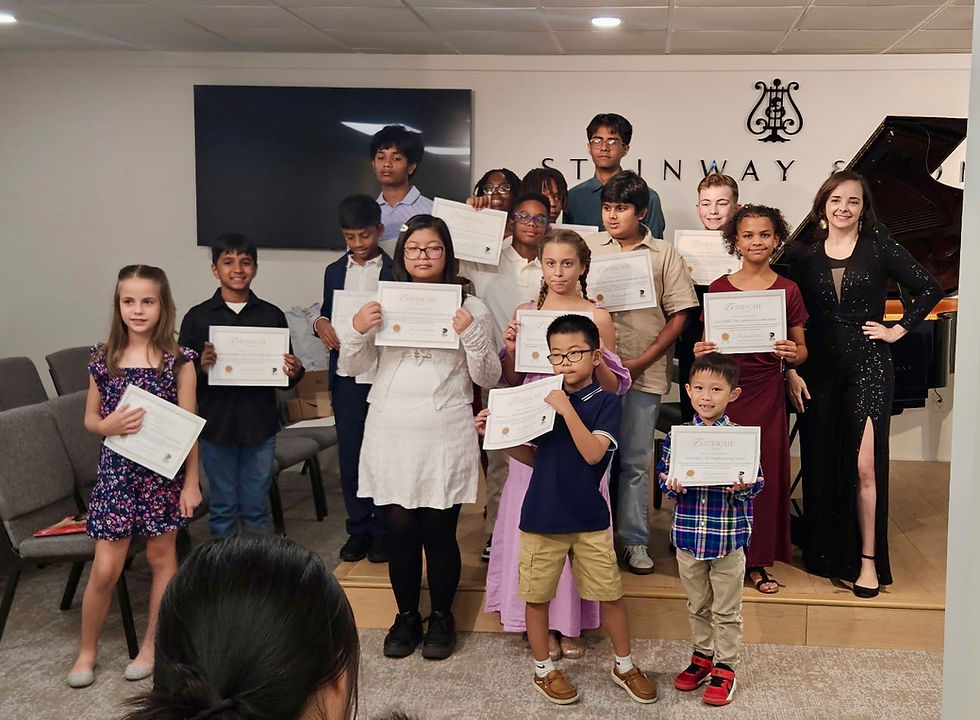5 Tips for Successful Piano Practicing
- Piano Performance Arts Academy

- Jan 11, 2021
- 2 min read
Updated: May 1, 2021
Learning to play the piano can be an extremely fun experience for children and adults. It will certainly require a lot of dedication, determination, and patience, but the results can be incredibly rewarding.
I think one of the keys to getting better at your instrument is to learn how to practice effectively. Knowing how to practice will not only maximize your time, but it will considerably improve your playing in a shorter amount of time. There are many strategies that could be used to improve your playing but here are five ways to add to your daily practice for consistent results.

1. Listen to yourself:
Pay attention to what the music is requesting from you. What are the dynamics, articulations, tempo markings, etc.? Are there any spots that need more attention to rhythm and counting? There is no way around listening to yourself if you want to be a good musician.
2. Learn the style first, then learn the notes:
Make choices from the early stages about what do you want to do with the music. Mark these choices with a pencil, so it can be changed later. Decide how you are going to shape the phrases, adding any dynamics, crescendos, decrescendos, etc. Remember to keep the original intentions of the composer and within the style as well.

3. Don’t just play “the notes”:
Think about what the music would sound like if it was played by a different instrument other than the piano. Play the melody, for instance, if it was played by a violin, a cello, or even by a singer. This will make your practice more fun and it will boost your artistry level. Remember, if you think like an artist, you will be one!
4. Don’t play “through” the piece every time your practice:

Start from the “trouble” spots and play it slowly. Once you start feeling more comfortable with the passage (s), you should up your tempo gradually. If you reached a tempo, but still there are mistakes, you should take it at a slower tempo until you are able to play with no mistakes. You could also practice with hands separate, even starting with the left hand. Also, try small sections, slowly and with hands together, and move on to the next one only when you have mastered the previous.
5. Be consistent:
The best way to achieve success in piano study is through correct and consistent practice habits. Remember your brain takes time to develop its neuro-connections that lead to aural and muscle memory. It's the daily consistent habits that promote the development of new skills or improving current ones.
If you would like more information, contact us and we will be glad to set up your first free trial lesson!
We hope you enjoyed this article and we look forward to educating parents and students in the art of teaching and learning more about music and piano.







Comments